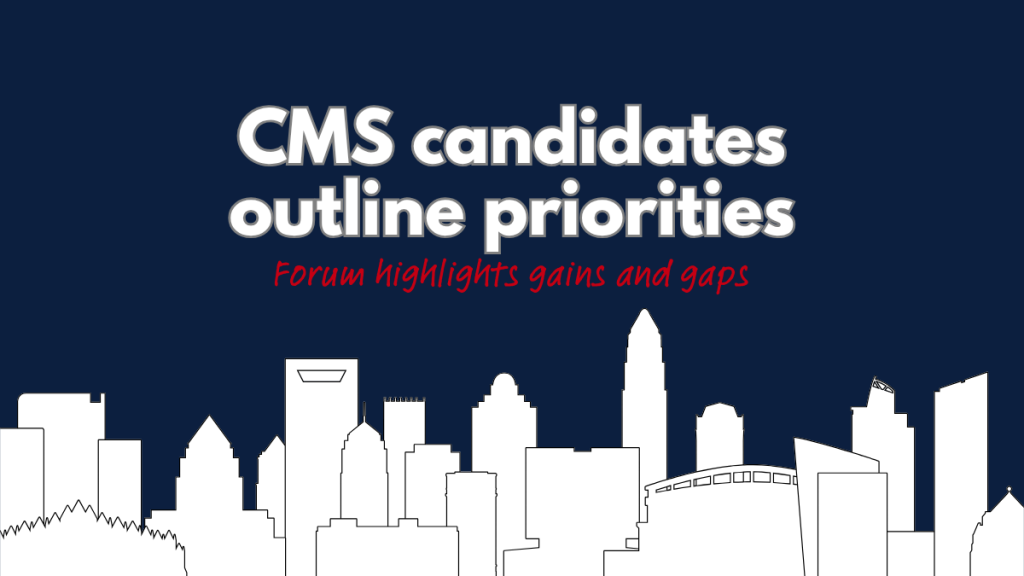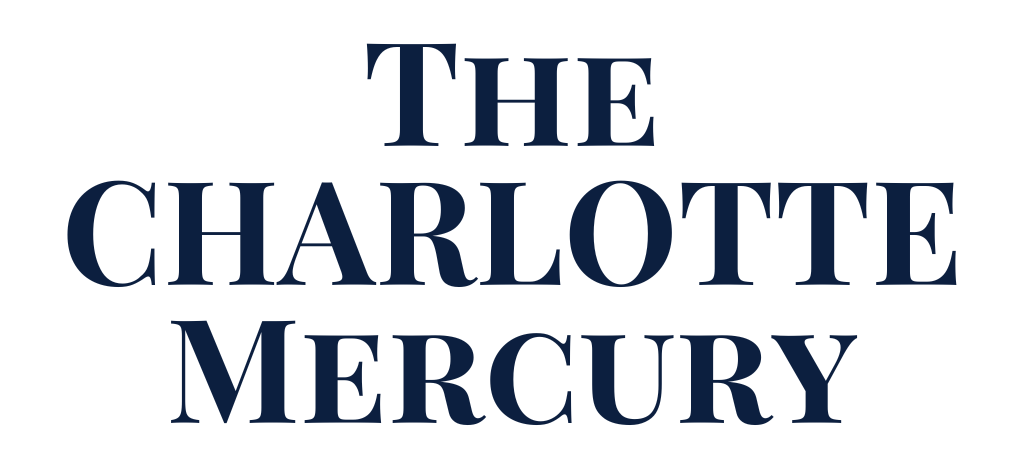
What Happened: CMS Board Candidate Forum Hosted by WFAE and the League of Women Voters
Event Overview
WFAE and the League of Women Voters of Charlotte Mecklenburg held a public forum featuring Charlotte-Mecklenburg Schools Board of Education candidates. The event was livestreamed and will air as a condensed episode of Charlotte Talks on Thursday morning. The full program ran roughly 90 minutes and will be edited to about 50 minutes for broadcast. The moderator was James Farrell. Program logistics and timekeeping were managed by Eric Thiel and Eli Portillo.
Format and Logistics
- One-minute opening statements per candidate.
- Questions with timed responses.
- Three-candidate races received about 15 minutes of Q&A.
- Two-candidate races received about 10 minutes of Q&A.
- Candidates were staged and rotated counterclockwise to and from the platform.
- Audience reminders included silencing phones and respecting editing needs for broadcast.
Opening Notes from Organizers
- WFAE emphasized in-depth local coverage and that the full livestream would be archived.
- The League of Women Voters highlighted turnout in local elections and urged attendees to vote and bring two to three additional voters.
District 1: Easley, Fountain, Hatch
Candidates:
- Melissa Easley (incumbent)
- Bill Fountain
- Charlita Hatch
Key Topics Raised:
- Student achievement: Multiple references to “historic gains.” Easley cited stability under Superintendent Dr. Hill and board accountability structures. Fountain focused on proficiency concerns, GPA and social promotion. Hatch highlighted using data to match opportunities across schools to address disparities.
- Funding: Questions on uncertainty in state and federal budgets and whether Mecklenburg County will need to do more. Hatch cited public-private solutions and housing initiatives. Fountain mentioned trimming bureaucracy and aligning roles for teachers. Easley described her budget vote context and said county support remains critical given state constraints.
- Transparency and communications: Easley referenced her ongoing newsletter “Chalk Talk” and “Minute with Melissa” monthly meetups. Fountain raised concerns about public perception and incident reporting. Hatch emphasized tailoring communications for different families and generations.
District 2: Haynes, Hall
Candidates:
- Shemaye Haynes
- Juanrique Hall
Key Topics Raised:
- Student achievement: Haynes supported superintendent-led outcomes and pushed for deeper family and community engagement. Hall stressed understanding the different circumstances across schools and students.
- Teacher recruitment and retention: Haynes proposed paraprofessional pipelines and certification pathways. Hall tied retention to stronger discipline support and classroom environment.
- Federal DEI policy: Hall stressed performance focus and personal responsibility in preparation. Haynes said federal shifts require local community solutions and partnerships when outside support is uncertain.
- District needs: Haynes prioritized structured volunteerism and welcoming schools. Hall noted District 2’s variety of schools and the need to tailor supports to unique conditions.
District 3: Unopposed
Candidate: D. Rankin
- Recognized on site; race is unopposed.
District 4: Edwards, King, Sneed
Candidates:
- Robert Edwards
- Jillian King
- Stephanie Sneed (incumbent, chair)
Key Topics Raised:
- Student achievement: Sneed detailed gains including removal of 31 schools from the low-performing list, 156 schools meeting or exceeding growth, and outperforming the state across tested grades and courses cited. King encouraged looking beyond scores to attendance, mental health and student joy. Edwards underscored sustaining gains and addressing internal pain points.
- Budget priorities: Sneed emphasized whole-child supports and alignment with board goals and guardrails, including advocacy. King prioritized teacher pay and removing barriers such as food and program access. Edwards focused on supports that keep teachers in place.
- Immigration enforcement at schools: Sneed said ICE had not been on campuses, reviewed guidance and training, and noted a balance between communicating and not inviting activity. King urged considering safe-zone resolutions, SRO agreements to avoid immigration actions, and “know your rights” materials.
District 5: Klein, Stone
Candidates:
- Lisa Klein (incumbent)
- Cynthia Stone
Key Topics Raised:
- Achievement vs growth: Klein cited momentum under current leadership. Stone urged closer looks at subgroup performance and English learners’ assessment context.
- Teacher pay and retention: Stone discussed county supplements and regional salary competition. Klein supported continued coordination with county leaders and business partners, plus housing initiatives for teachers.
- Engaging non-parent residents: Stone tied strong schools to business recruitment and city reputation. Klein pointed to work with business coalitions and growing the district’s public standing.
- District needs: Klein wants to bring families back to CMS, noting private school pull in the area. Stone highlighted mental health supports, especially at the elementary level.
District 6: Emihel, London, Sheely
Candidates:
- Tony Emihel
- Anna London
- Justin Sheely
Key Topics Raised:
- Student achievement: London supported superintendent stability and scaling what works in both high- and low-performing schools, with professional development and parent engagement. Sheely endorsed aggressive goals and continuing gains over time. Emihel cautioned against crediting consultants over educators and urged budget focus on classrooms.
- County role in funding: London supported a larger county role and public-private partnerships, plus community recognition for educators. Sheely said if higher governments stall, the county should fill gaps. Emihel advocated for prioritization and raised concerns about vendor influence; London responded that she had no role in the referenced contract.
- Student Outcomes Focused Governance (SOFG): Sheely said the model centers students and classroom priorities. London said SOFG keeps the board on outcomes and limits drift into operations.
Closing Acknowledgment
Organizers thanked candidates and attendees. The audience recognized moderator James Farrell.
Prologue Segment: Radio Host and Music Notes
Before the forum notes, a separate radio segment included host Tony Moad. He referenced:
- “Misty” performed by Benny Carter
- John Pizzarelli and Azur Tay, with Ray Kennedy on piano
- “Bags’ Groove” by Miles Davis, featuring Milt Jackson on vibes and Thelonious Monk on piano
Where to Find Our Coverage
Explore The Charlotte Mercury’s latest:
- Homepage: The Charlotte Mercury
- All reporting: News
- Local power, policy, and votes: Politics
- Our special 2025 election hub: “Poll Dance 2025” at Election 2025
About the Author
Jack Beckett covers civic life for The Charlotte Mercury with a notebook, two pens, and coffee strong enough to file public records requests on its own. If you want more, we have more. Start at The Charlotte Mercury, dive into daily civic reporting on News, then follow the money and the meetings on Politics. Our 2025 election hub, Poll Dance 2025, is the one-stop shop for guides, dates, and district matchups. You can always message us on X, or Twitter, or as we call it, Twix, at @queencityexp.
The Fine Print
Questions about how we work, buy ads, or file a tip with privacy intact? Start here:
Creative Commons License
© 2025 The Charlotte Mercury / Strolling Ballantyne
This article, “CMS Candidate Forum: Districts 1–6 discuss gains, funding, communications and policy at WFAE event,” by Jack Beckett is licensed under CC BY-ND 4.0.
“CMS Candidate Forum: Districts 1–6 discuss gains, funding, communications and policy at WFAE event”
by Jack Beckett, The Charlotte Mercury (CC BY-ND 4.0)
